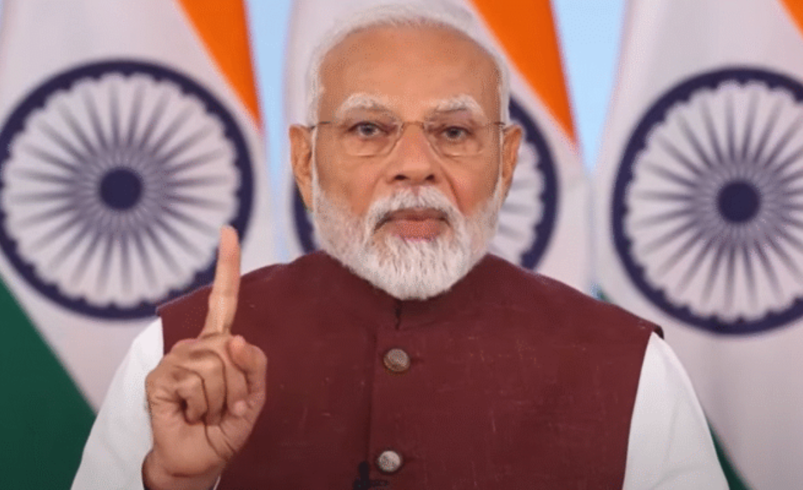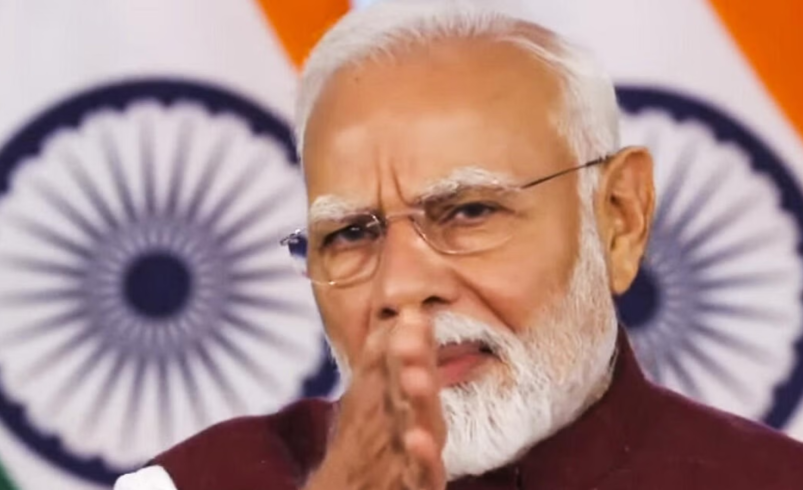In a powerful national address following Operation Sindoor, Prime Minister Narendra Modi laid out a bold, uncompromising vision for India’s future dealings with Pakistan. Citing the brutal Pahalgam terror attack, Modi declared that “blood and water will not flow together,” a reference to India’s suspension of the Indus Water Treaty. The message was clear: India will no longer tolerate terrorism under the guise of diplomatic engagement. With rising calls for accountability, the PM sent a chilling warning to Pakistan: dismantle terror infrastructure or face consequences. India has firmly established that national security and counter-terror operations will take precedence over treaties and talks.
‘No More Nuclear Blackmail’: Modi Redefines the Deterrence Equation
One of the strongest takeaways from Modi’s speech was his outright dismissal of Pakistan’s nuclear threat as a deterrent. “No nuclear blackmail will be tolerated,” he thundered, positioning Operation Sindoor as the next chapter following India’s 2016 surgical strikes and 2019 Balakot air strikes. The Indian government, he said, will now target terror hubs even if they hide behind nuclear threats. He also exposed the Pakistani establishment, pointing to the presence of army officers at terrorist funerals, branding it as state-sponsored terrorism. This stance reshapes the India-Pakistan security narrative, where India is no longer restrained by historical fears, but bold and proactive in its counter-strikes.
Operation Sindoor: India’s Fiery Response to Pahalgam Massacre
Operation Sindoor was India’s swift and targeted response to the 22 April Pahalgam terror attack, which Modi called the most barbaric assault on Indian civilians in recent times. Terrorists had asked passengers about their religion before executing them in front of their families, an act that deeply shook the nation. Modi described Operation Sindoor as not just a military mission but a ‘vow for justice’, symbolically linked to avenging the loss of sindoor — a metaphor for the dignity of Indian women. By giving full freedom to the armed forces, India showed the world that its patience has limits, and provocations will now face precision responses.
High-Tech Warfare & Global Messaging: India’s Offensive Strategy
In a rare admission, PM Modi highlighted how India’s “Made-in-India” weapons proved themselves during Operation Sindoor. He described how India’s missiles and drones precisely targeted terror hubs, including those in Bahawalpur and Muridke — known bases for attacks ranging from 9/11 to the London bombings. In response to Pakistan’s counter-attacks on civilian locations, India’s air defense systems swiftly neutralized threats, exposing Pakistan’s vulnerability. Modi emphasized that India struck at the heart of Pakistan’s air bases, reinforcing its capabilities in modern warfare. The message was loud and clear: India is ready for 21st-century conflicts — and it is not afraid to lead them.
Peace Through Strength: Dialogue Only on Terror and PoK
PM Modi concluded his address by making it clear that India’s door to dialogue remains open, but only on its terms. Talks, he stressed, will only happen on the subjects of terrorism and Pakistan-occupied Kashmir (PoK). Ceasefire was only considered once Pakistan promised to halt all terror activities, but India remains vigilant. Notably, Modi did not acknowledge Donald Trump’s claim of brokering peace, reinforcing India’s autonomous approach to its security. Quoting Buddha on the occasion of Buddha Poornima, Modi said, “Peace comes through strength — and India has shown that strength when it was needed most.” Operation Sindoor, thus, is not just a counter-terror mission — it is a new geopolitical doctrine.
Get the latest in business, markets, startups, and policy—visit businessnewsindia.in for in-depth updates and follow us on Instagram @businessnewsindia.in for daily bites of what matters most.
Source : swarajyamag.com









